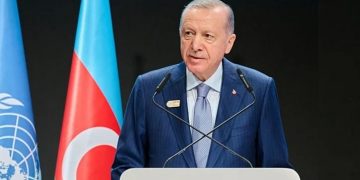Following the recent arrest of reporters, we examine the deteriorating state of journalism in election year Iran.
[vsw id=”kfsut71ak7I” source=”youtube” width=”425″ height=”344″ autoplay=”no”]
On the Listening Post we track the treatment of media around the world. With the muzzling of news outlets, censorship of content and the arrest of journalists, Iran is a repeat offender.
Over the past days, at least 14 reporters have been detained in a sweep of reform-minded news outlets in the country. They worked for seven different news outlets but the implication is that most of them also did work for foreign media outlets the government calls ‘anti-revolutionary’.
The timing of these arrests is significant: In five months, Iran will hold presidential elections – the first after the 2009 polls that saw huge protests in Tehran, the footage of which was beamed around Iran and across the world.
Hanging over the Iran media story – like a dark cloud of context – is the spectre of those 2009 protests, and these fresh arrests signal a government that is taking pre-emptive action. The warning from the regime could not be clearer: collaborate with the voice of “the enemy” and you are no longer reporting, you are agitating.
On one side of the News Divide this week are journalists Saeed Kamali-Dehghan from the Guardian, Kasra Naji from BBC Persian and Maziar Bahari. Suffice to say that none of these writers and broadcasters would be welcome in Iran at this time. Reza Marashi from the US-based National Iranian-American Council offers essential perspective, and the countervailing voice is Hillary Mann Leverett. Her latest book Going To Tehran urges us to see it from the Iranian side. She asks: Are they paranoid or are we really out to get them?
On Newsbytes this week: In Ukraine, a former security official has been sentenced for the killing of the journalist Georgiy Gongadze in 2000 – a case that has revived memories of past oppression; Twitter has closed down the account of Somalia’s al-Shabab movement after the group used it to spread threatening propaganda; a cautious welcome from media watchers in Myanmar where the state censorship body has been dissolved; and finally, media mogul Rupert Murdoch has apologised publicly for a cartoon targeting Binyamin Netanyahu that has angered pro-Israel organisations.
Our feature takes us to Georgia where media is too often the plaything of politicians. Last year, a video of violent abuse in a Tiblisi prison helped carry Prime Minister Bidzina Ivanishvili to electoral victory but the timing of that release raised questions of media manipulation.
The Listening Post’s Flo Phillips investigates the power of the media and the power that shapes the media with Baia Tsanava from Imedi TV; Giorgi Lapherashvili from Rustavi TV; Tamar Rukhadze, the former head of news at TV9; and Mathias Huter from Transparency International.
Lastly, our internet video of the week wonders what is driving the changes behind the scenes at Facebook. UCB Comedy offers us this tongue-in-cheek look at the kind of focus group that might be helping the social media giant to shape our user experience. We think you will find a lot you can relate to – if not actually agree with.
Al Jazeera













